|
Disability Rights and Sexual Health is for Everyone Action Team
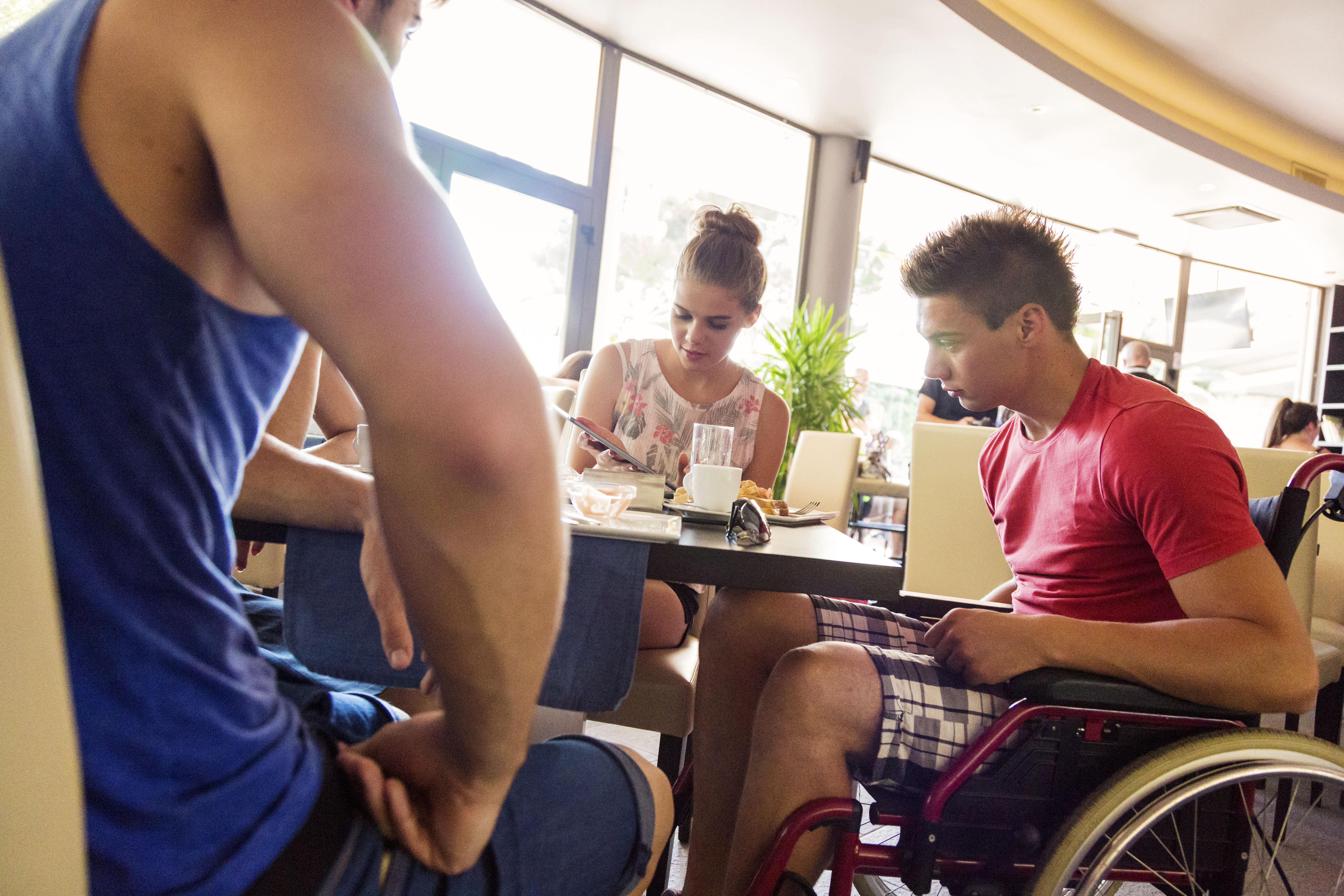 Sexual and reproductive health are important parts of overall health; however, people with disabilities are not always given the resources they need to achieve it. For many, this topic is addressed in schools, at home, in doctors' offices, or in the care of other human service professionals. Are people with disabilities asked about their sexual needs, or does society assume that they cannot or do not have sex? Read more... Sexual and reproductive health are important parts of overall health; however, people with disabilities are not always given the resources they need to achieve it. For many, this topic is addressed in schools, at home, in doctors' offices, or in the care of other human service professionals. Are people with disabilities asked about their sexual needs, or does society assume that they cannot or do not have sex? Read more...
MMWR: 2016 Zika Birth Defects Surveillance
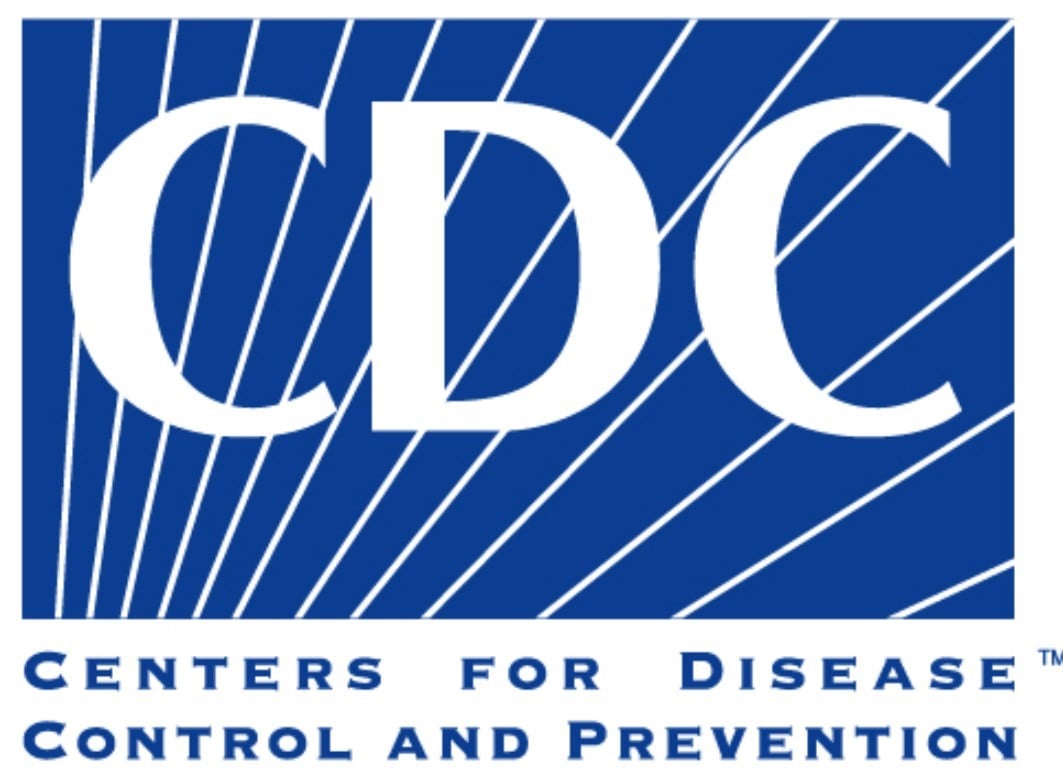 CDC published a new Morbidity and Mortality Weekly Report (MMWR) describing the ;prevalence in U.S. states and territories of birth defects potentially related to Zika infection during pregnancy. The report found that about 3 out of every 1,000 had a potentially related birth defect. Read more... CDC published a new Morbidity and Mortality Weekly Report (MMWR) describing the ;prevalence in U.S. states and territories of birth defects potentially related to Zika infection during pregnancy. The report found that about 3 out of every 1,000 had a potentially related birth defect. Read more...
Highlights from the Network
Embedding Cultural Diversity and Cultural and Linguistic Competence
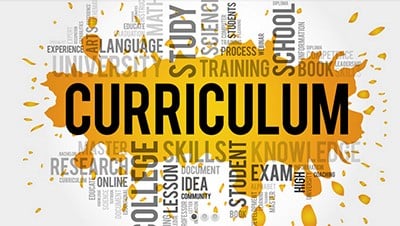 Georgetown University Center for Excellence in Developmental Disabilities (GUCEDD) is leading a consortium of four UCEDDs (Colorado, Georgia State, Massachusetts-Boston, Minnesota) and one Leadership Education in Neurodevelopmental Disabilities (Vermont - LEND) to implement the Embedding Cultural Diversity and Cultural and Linguistic Competence: A Guide for UCEDD Curricula and Training Activities Project. Embedding II (shortened title) is designed to build the capacity and leadership of UCEDDs to plan, implement, and evaluate their training activities/programs to integrate principles and practices of cultural diversity and cultural and linguistic competence (CLC) across all core functions. The project is conducting an array of consultation, professional development, and technical assistance activities for the UCEDD network on how to use resources/tools developed by the Embedding Project to advance cultural diversity and CLC and sustain change in curricula and training activities - including individual consultation to faculty and staff and on-site technical assistance for up to four UCEDDs. Click here for additional information and to apply for consultation and/or technical assistance. Georgetown University Center for Excellence in Developmental Disabilities (GUCEDD) is leading a consortium of four UCEDDs (Colorado, Georgia State, Massachusetts-Boston, Minnesota) and one Leadership Education in Neurodevelopmental Disabilities (Vermont - LEND) to implement the Embedding Cultural Diversity and Cultural and Linguistic Competence: A Guide for UCEDD Curricula and Training Activities Project. Embedding II (shortened title) is designed to build the capacity and leadership of UCEDDs to plan, implement, and evaluate their training activities/programs to integrate principles and practices of cultural diversity and cultural and linguistic competence (CLC) across all core functions. The project is conducting an array of consultation, professional development, and technical assistance activities for the UCEDD network on how to use resources/tools developed by the Embedding Project to advance cultural diversity and CLC and sustain change in curricula and training activities - including individual consultation to faculty and staff and on-site technical assistance for up to four UCEDDs. Click here for additional information and to apply for consultation and/or technical assistance.
Center for Leadership in Disability Investigates HIV Prevention for Individuals with Disabilities (GA UCEDD/LEND)
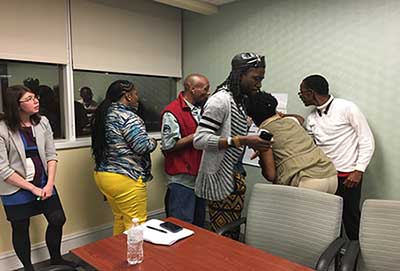 Over the past year, faculty and staff from the Center for Leadership in Disability (CLD) in the School of Public Health at Georgia State University worked with community partners to conduct a research project identifying the availability and accessibility of HIV prevention resources and services for individuals with intellectual and developmental disabilities (IDD) in the Atlanta Metropolitan Region. Read more... Over the past year, faculty and staff from the Center for Leadership in Disability (CLD) in the School of Public Health at Georgia State University worked with community partners to conduct a research project identifying the availability and accessibility of HIV prevention resources and services for individuals with intellectual and developmental disabilities (IDD) in the Atlanta Metropolitan Region. Read more...
Compounded Disparities: Health Equity at the Intersection of Disability, Race, and Ethnicity
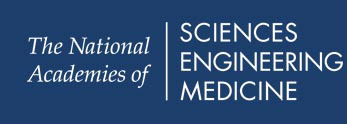 The Health and Medicine Division of the National Academies of Sciences, Engineering, and Medicine released the commissioned paper Compounded Disparities: Health Equity at the Intersection of Disability, Race, and Ethnicity. Portions of this paper were presented at a 2016 workshop on the intersections among health disparities, disability, health equity, and health literacy (proceedings of which were released in late November of 2017). Read the full version of the paper. The Health and Medicine Division of the National Academies of Sciences, Engineering, and Medicine released the commissioned paper Compounded Disparities: Health Equity at the Intersection of Disability, Race, and Ethnicity. Portions of this paper were presented at a 2016 workshop on the intersections among health disparities, disability, health equity, and health literacy (proceedings of which were released in late November of 2017). Read the full version of the paper.
Upcoming Events
Partnering to Transform Healthcare with People with Intellectual and Developmental Disabilities
Thursday March 15th, 2018 3:00pm-4:00pm ET
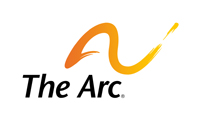 Disparities in treatment of people with intellectual disability in health care leads to increased morbidity and mortality and costs, and decreased quality of life. Proactive work for practical, implementable solutions is needed, as well as consensus and action plans on best practices and research and policy agendas. The Partnering to Transform Healthcare with People with Disabilities Conference provided an opportunity for self-advocates across disability communities (intellectual, physical, sensory and mental) to partner with national experts (providers and policy makers, executives, insurers, regulators and others) to synthesize current innovations and improvement efforts in health care with people with disabilities, reach consensus on best practices, propose needed research and policies, and develop action plans. We will report findings from the conference regarding currently implementable solutions, consensus on best practices and research, and policy agenda recommendations for people with intellectual disability. Register here. Disparities in treatment of people with intellectual disability in health care leads to increased morbidity and mortality and costs, and decreased quality of life. Proactive work for practical, implementable solutions is needed, as well as consensus and action plans on best practices and research and policy agendas. The Partnering to Transform Healthcare with People with Disabilities Conference provided an opportunity for self-advocates across disability communities (intellectual, physical, sensory and mental) to partner with national experts (providers and policy makers, executives, insurers, regulators and others) to synthesize current innovations and improvement efforts in health care with people with disabilities, reach consensus on best practices, propose needed research and policies, and develop action plans. We will report findings from the conference regarding currently implementable solutions, consensus on best practices and research, and policy agenda recommendations for people with intellectual disability. Register here.
AUCD for All 2018 Gala: Celebrating Leadership in State Policy
Tuesday, March 20, 2018, Washington, DC
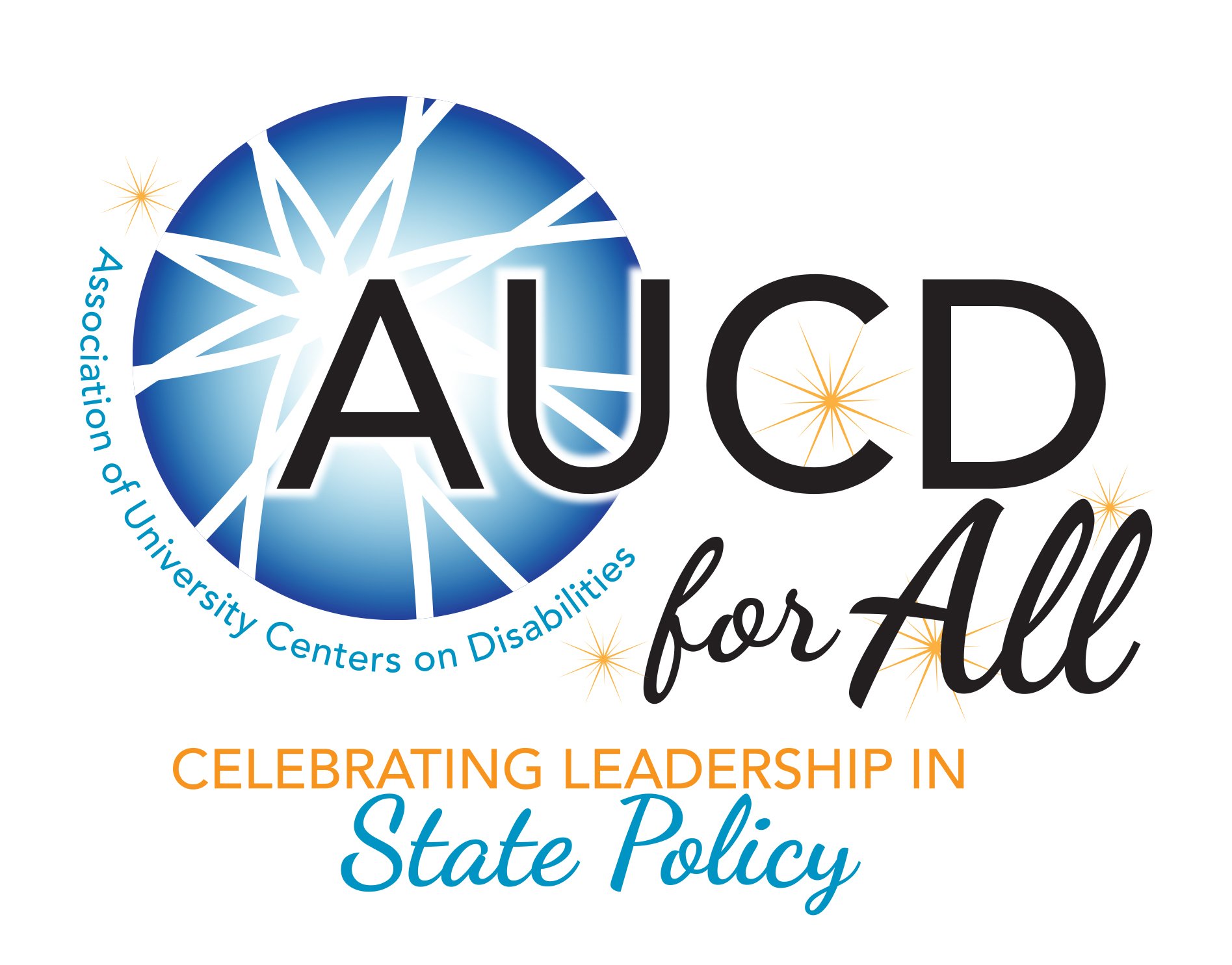 Join the Association of University Centers on Disabilities (AUCD) on March 20, 2018, to celebrate state-level leadership in disability policy. States are often the catalysts for innovation, and AUCD members are engaging with policy makers and coalition partners in every state and territory by presenting research, conducting training, and developing and advocating for policies that will improve the lives of children and adults with disabilities. Read more... Join the Association of University Centers on Disabilities (AUCD) on March 20, 2018, to celebrate state-level leadership in disability policy. States are often the catalysts for innovation, and AUCD members are engaging with policy makers and coalition partners in every state and territory by presenting research, conducting training, and developing and advocating for policies that will improve the lives of children and adults with disabilities. Read more...
Disability Policy Seminar 2018 and Trainee Summit
April 22-25, 2018, Washington, DC
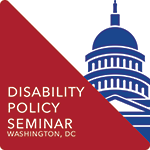 The Disability Policy Seminar is the premier opportunity to cultivate champions on Capitol Hill and advance the grassroots movement for people with intellectual and developmental disabilities. Join AUCD, the Arc, AAIDD, NACDD, SABE, and UCP as we learn about and advocate for access to health care and community living supports, and bedrock civil rights protections. The first 100 days of any new Administration and Congress are key to setting the agenda, and this year, more than ever, we need you in Washington, DC. Read more... The Disability Policy Seminar is the premier opportunity to cultivate champions on Capitol Hill and advance the grassroots movement for people with intellectual and developmental disabilities. Join AUCD, the Arc, AAIDD, NACDD, SABE, and UCP as we learn about and advocate for access to health care and community living supports, and bedrock civil rights protections. The first 100 days of any new Administration and Congress are key to setting the agenda, and this year, more than ever, we need you in Washington, DC. Read more...
AUCD Leadership Academy
June 24 - June 29, 2018, Atlanta, GA
Application deadline will be March 2, 2018.
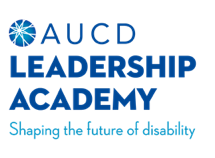 The AUCD Leadership Academy is a week-long program designed to enhance the skills of current and emerging leaders from the disability network to build coalitions to improve systems of supports and services. The Leadership Academy seeks participants from UCEDDs, LENDs, and their disability partners to come together to immerse themselves for a week of study, shared experiences, self-evaluation, and skill development. Read more... The AUCD Leadership Academy is a week-long program designed to enhance the skills of current and emerging leaders from the disability network to build coalitions to improve systems of supports and services. The Leadership Academy seeks participants from UCEDDs, LENDs, and their disability partners to come together to immerse themselves for a week of study, shared experiences, self-evaluation, and skill development. Read more...
Helpful Resources
Youth and Parents Share Ideas for Supporting Healthy Lifestyles for Youth with Disabilities
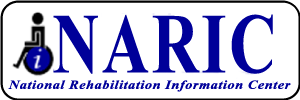 Youth with disabilities are less likely to be physically active and likely to have higher rates of obesity than youth without disabilities, according to earlier research studies. Youth with disabilities may find it challenging to follow healthy lifestyle habits, such as regular exercise and healthy eating, due to social and environmental barriers. In a recent NIDILRR-funded study, researchers held focus groups to discuss these issues facing ethnic minority youth with disabilities. Researchers wanted to find out what challenges the youth and parents reported that made it difficult to engage in healthy lifestyles and participate actively in their communities. Read more here Youth with disabilities are less likely to be physically active and likely to have higher rates of obesity than youth without disabilities, according to earlier research studies. Youth with disabilities may find it challenging to follow healthy lifestyle habits, such as regular exercise and healthy eating, due to social and environmental barriers. In a recent NIDILRR-funded study, researchers held focus groups to discuss these issues facing ethnic minority youth with disabilities. Researchers wanted to find out what challenges the youth and parents reported that made it difficult to engage in healthy lifestyles and participate actively in their communities. Read more here
Healthy Native Babies Project Toolkit Disk
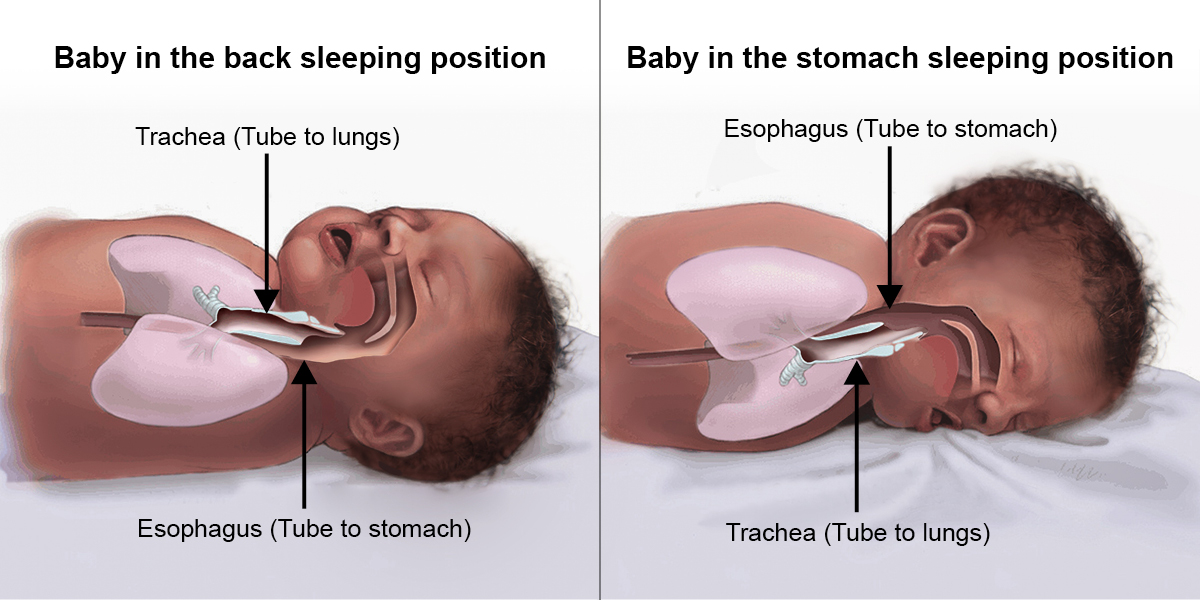 HHS/NIH, Eunice Kennedy Shriver National Institute of Child Health and Human Development (NICHD): Announcement of outreach stipends for Tribes and organizations serving AI/AN communities to have customized materials with Safe to Sleep Campaign messages printed by NICHD, utilizing the Healthy Native Babies Project Toolkit Disk. The Toolkit Disk allows individuals to design culturally appropriate and regionally specific materials with phrases translated into Native languages as well as photographs of Native families taken across the country. View campaign materials here. For further information, please contact [email protected]. HHS/NIH, Eunice Kennedy Shriver National Institute of Child Health and Human Development (NICHD): Announcement of outreach stipends for Tribes and organizations serving AI/AN communities to have customized materials with Safe to Sleep Campaign messages printed by NICHD, utilizing the Healthy Native Babies Project Toolkit Disk. The Toolkit Disk allows individuals to design culturally appropriate and regionally specific materials with phrases translated into Native languages as well as photographs of Native families taken across the country. View campaign materials here. For further information, please contact [email protected].
Poverty and Health of People with Disabilities
 People with disabilities have been a demographic that experiences poverty at a rate disproportionate to their peers without disabilities. Population surveys have consistently shown that nearly one third of people with disabilities live below the poverty line and they're more than twice as likely to live in poverty when compared to their non-disabled peers. Read more about the how poverty can also foster living in conditions that do not promote health or access to health promotion opportunities and can cause the financial distress that lead to impoverished conditions here. People with disabilities have been a demographic that experiences poverty at a rate disproportionate to their peers without disabilities. Population surveys have consistently shown that nearly one third of people with disabilities live below the poverty line and they're more than twice as likely to live in poverty when compared to their non-disabled peers. Read more about the how poverty can also foster living in conditions that do not promote health or access to health promotion opportunities and can cause the financial distress that lead to impoverished conditions here.
The Guide to Community Preventive Services and Disability Inclusion
 The Guide to Community Preventive Services helps public health officials and community organizations see what programs exist to address public health issues (e.g., cancer screenings, access to physical activity, smoking). In a recent report, the Centers for Disease Control and Prevention (CDC) summarize how public health recommendations from the guide can be adapted to better benefit people with disabilities. Read more... The Guide to Community Preventive Services helps public health officials and community organizations see what programs exist to address public health issues (e.g., cancer screenings, access to physical activity, smoking). In a recent report, the Centers for Disease Control and Prevention (CDC) summarize how public health recommendations from the guide can be adapted to better benefit people with disabilities. Read more...
Apply Now: NACCHO's Health in All Policies Technical Assistance Program
 NACCHO is accepting applications for the Health in All Policies (HiAP) Technical Assistance Program for local health department staff interested in assistance. NACCHO defines HiAP as a change in systems that determine how decisions are made and implemented at the local, state, and federal level. Apply by May 15. Learn more...> NACCHO is accepting applications for the Health in All Policies (HiAP) Technical Assistance Program for local health department staff interested in assistance. NACCHO defines HiAP as a change in systems that determine how decisions are made and implemented at the local, state, and federal level. Apply by May 15. Learn more...>
Healthy Communities Policy Guide
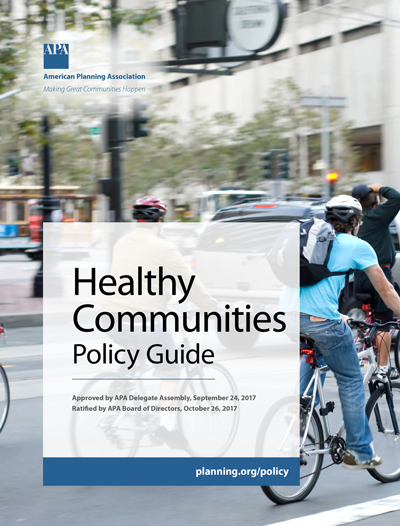 APA's Healthy Communities Policy Guide identifies policy ideas for local, state, and federally elected officials aimed at improving community health and quality of living through planning. APA believes "healthy communities" are places where all individuals have access to healthy built, social, economic, and natural environments that give them the opportunity to live their fullest potential regardless of their race, ethnicity, gender, income, age, abilities, or other socially defined circumstance. Read the complete guide here. APA's Healthy Communities Policy Guide identifies policy ideas for local, state, and federally elected officials aimed at improving community health and quality of living through planning. APA believes "healthy communities" are places where all individuals have access to healthy built, social, economic, and natural environments that give them the opportunity to live their fullest potential regardless of their race, ethnicity, gender, income, age, abilities, or other socially defined circumstance. Read the complete guide here.
|


